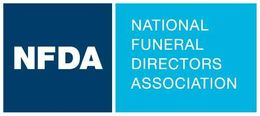Navigating Grief After the Death of A Loved One By Suicide
How to use the right words and find support

The death of a loved one is always painful, but the death of a loved one due to suicide can be complicated by heightened emotions and complex feelings. Death by suicide is often clouded with questions, many of which are impossible to answer. While there will never be a quick fix for grief, particularly suicide, there are practices that might help.
Label With Care
One of the most significant stigmas around suicide is in the language we use. When we use words like "committed suicide," we borrow language often associated with criminal activity, such as robbery or murder. Similarly, "killed themself" is often connected with punishment. Reframing suicide, not as a crime but rather the result of complex causes, can help reduce stigmas. Many prefer language such as "died by suicide."
Lean Into Others
In addition to reshaping the narrative through the language we use, another helpful step in grieving a loved one is to talk about your grief and remember the life of your loved one with story sharing. Grief is often an isolating experience, but there are incredible benefits and a sense of community that can be felt when your grief journey is shared. While it can be comforting speaking to those who knew the loved one who died, many often find support in speaking with others who have lost someone to suicide, such as in a support group, as they have a special understanding of the complicated emotions surrounding this type of death.
Those grieving the loss of a loved one from suicide often report feelings of shame or other similar emotions that cause them to hold back from sharing and set them into a pattern of isolation. If there is one truth suicide survivors must hear, it's that there's no shame or blame in suicide. Those loved ones left grieving a suicide loss need and deserve the support of their community.
Unanswerable Questions
Sara Murphy, a death educator, certified thanatologist (Association for Death Education and Counseling), and suicidologist, writes on Remembering a Life that, "'Why?' is the word to which we most commonly return after experiencing a suicide loss…we try to find a concrete, singular reason for the suicide death. This process can consume months and years, but it will likely not get us closer to understanding the exact, complicated, full set of factors that led to a loved one's death."
Perhaps one of the most challenging parts of suicide loss is the impossibility of answering every question. The truth is that finding the answers to those questions won't change the events that took place, and so, whenever possible, it can be helpful for suicide survivors to seek support rather than answers.
Whether you are grieving the loss of a loved one or supporting a loved one going through this grief journey, there are countless resources, like Remembering A Life, that can guide you at all stages, from planning a meaningful tribute that honors the life of your loved one to connecting you with support resources to help you grieve in a healthy way.
is a consumer education initiative created by the National Funeral Directors Association (NFDA). Whether a death has just occurred or an individual and their family wishes to plan in advance, Remembering a Life offers guidance on where to begin the planning process, the kinds of decisions that they will make and the many options available to make a tribute personal and meaningful. In addition to helpful information about planning a meaningful service, Remembering a Life offers other useful information, such as resources to help people to understand their own and others' grief and loss, and a helpful online search tool to find a compassionate NFDA-member funeral director nearby.

The National Funeral Directors Association is the world's leading, largest and most trusted association to support funeral professionals. We provide our members with critical information, innovative tools, resources and the professional community they need to serve families, run sustainable businesses and become pillars in their communities.

